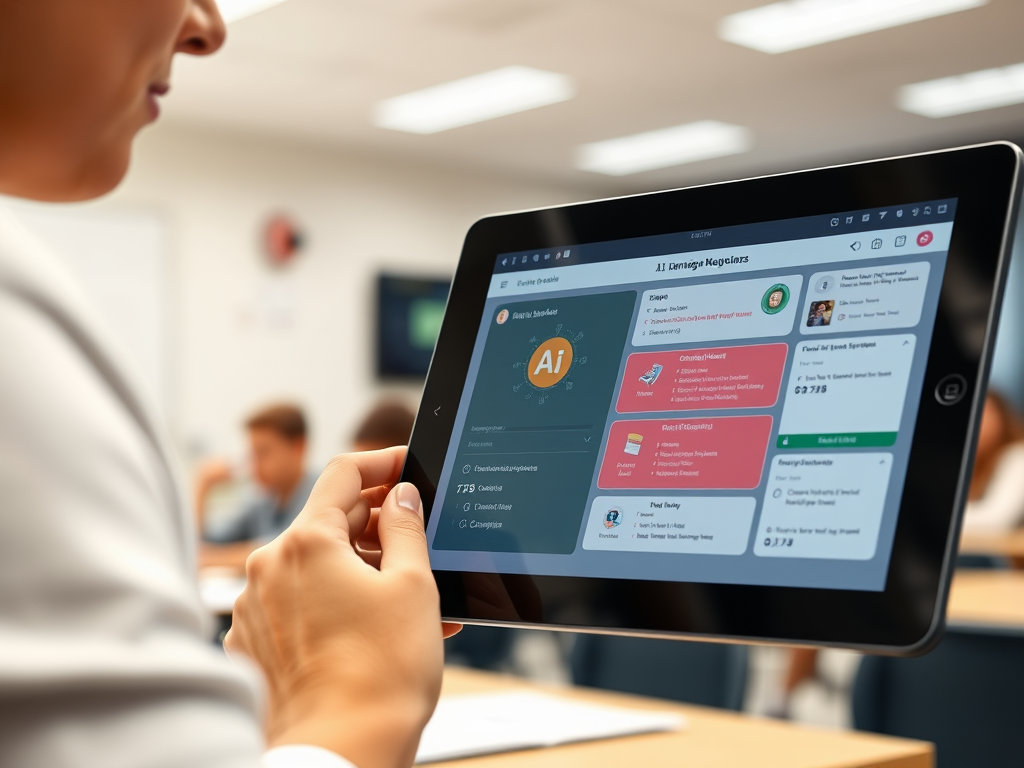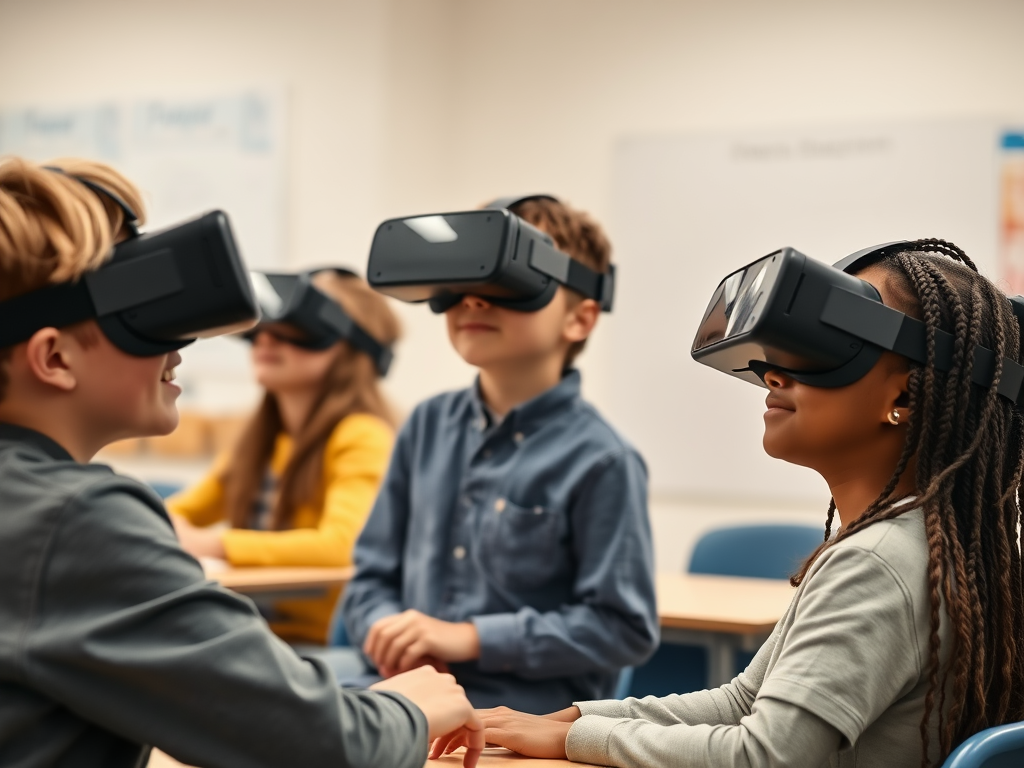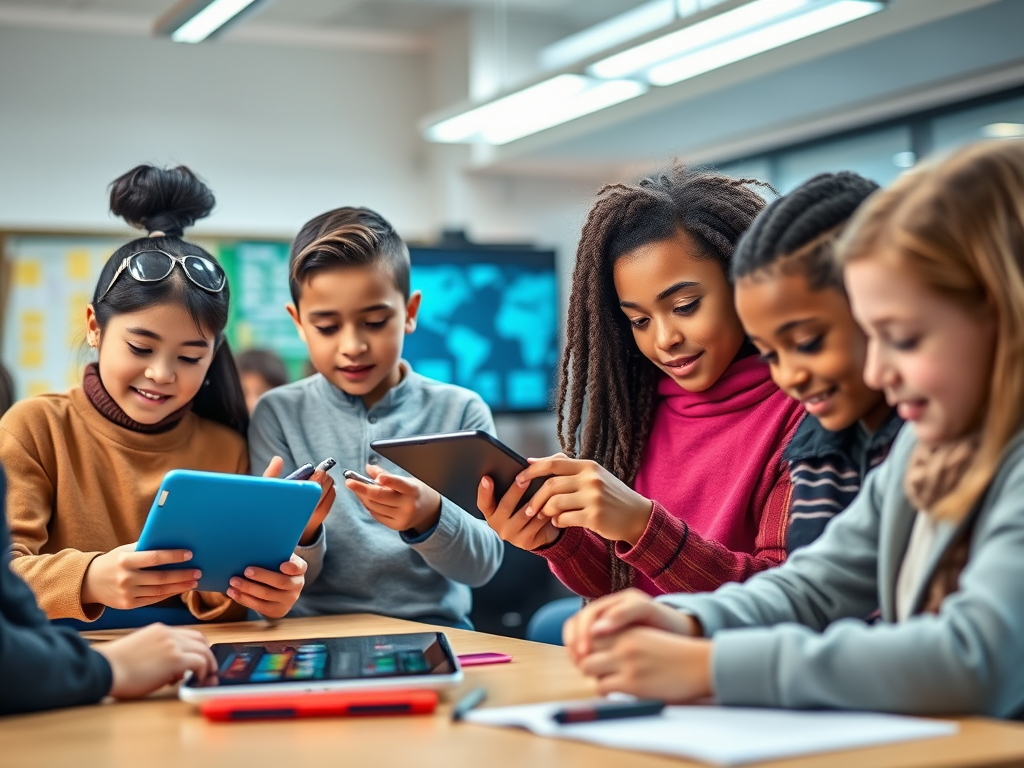Dubai is rapidly transforming its educational landscape with the integration of artificial intelligence (AI) technologies. The emirate’s commitment to innovation and quality education has led to a significant rise in AI-driven educational tools that enhance learning experiences for students of all ages. This shift not only prepares students for a more technologically advanced future but also ensures that educators have the resources needed to facilitate effective teaching. In this article, we will explore the factors contributing to this growth, the key tools being adopted, and the broader implications of AI in education.
The Catalyst for AI Integration in Education

The UAE government has placed a strong emphasis on digital transformation as part of its Vision 2021 initiative. Aiming to create a knowledge-based economy, Dubai is leveraging AI as a key driver of educational reform. Several factors account for the accelerated growth of AI-driven tools, including:
- Government Support: Financial and regulatory backing from the government facilitates research and development in educational technologies.
- Partnerships with Tech Companies: Collaborations with global tech leaders bring state-of-the-art resources to local educational institutions.
- Focus on STEM Education: A concerted effort to emphasize science, technology, engineering, and mathematics (STEM) fields prepares students for future job markets.
- Personalized Learning: AI tools provide customized educational experiences that cater to individual student needs, enhancing engagement and understanding.
- Access to Data Analytics: AI platforms utilize big data to track student performance, offering actionable insights for educators and administrators.
Key AI-Driven Educational Tools in Dubai

As Dubai progresses further into the realm of AI-enhanced education, several noteworthy tools are making their mark. These tools not only assist in the learning process but also aim to optimize administrative functions within educational institutions.
1. Intelligent Tutoring Systems
These systems utilize algorithms to analyze students’ strengths and weaknesses, providing tailored recommendations and resources to improve their understanding. For instance, platforms like Smart Learning and GEMS Education are already in use, offering personalized learning journeys.
2. Virtual Reality (VR) and Augmented Reality (AR)
VR and AR technologies create immersive learning environments that enhance engagement and retention. In Dubai, schools are integrating these tools into subjects like history and science, allowing students to explore distant lands and complex biological processes interactively.
3. AI-Driven Learning Management Systems (LMS)
These systems streamline educational content delivery and use AI to assess student performance continually. With platforms like Edmodo and Moodle, educators in Dubai are able to monitor attendance, assign homework, and gauge learning outcomes more effectively.
The Future of AI in Education in Dubai
Looking ahead, the role of AI in education is expected to grow tremendously. As more schools and universities incorporate these technologies, we can anticipate various innovations and improvements, including:
- Enhanced Collaboration: AI tools will facilitate collaboration between students, educators, and parents, fostering a community that supports learning.
- Professional Development for Educators: AI can also aid teachers in refining their skills through tailored training programs based on classroom performance data.
- Expansion of Educational Access: AI-driven online learning platforms can help reach remote areas, ensuring that quality education is accessible to all students.
- Growth in AI Literacy: As AI becomes embedded in curricula, students will gain essential skills in AI literacy, preparing them for future job markets.
- Impact on Educational Equity: AI tools can help identify and bridge gaps in educational achievement among various demographics, promoting equitable learning environments.
Conclusion
Dubai’s commitment to fostering a technologically advanced educational environment through AI-driven tools signifies a transformative era for both students and teachers. The integration of these innovative resources not only enhances the learning experience but also aligns education with the demands of the 21st-century job market. As this trend continues to evolve, it will redefine how education is delivered, making learning more engaging and effective. This growth reflects a broader global shift towards AI in education, setting a precedent for other regions to follow suit.
Frequently Asked Questions
1. What is the main objective of integrating AI into education in Dubai?
The primary objective is to enhance learning experiences, personalize education, and prepare students for a technology-driven future while improving educational outcomes and accessibility.
2. How does AI benefit teachers?
AI helps teachers by providing data-driven insights into student performance, offering tailored learning resources, and streamlining administrative tasks, allowing them to focus more on teaching.
3. Are there any notable partnerships in Dubai’s education sector?
Yes, Dubai has established partnerships with several global technology companies like Microsoft and IBM to develop and implement cutting-edge educational tools and platforms.
4. How can students benefit from AI-driven learning management systems?
Students can receive personalized feedback, track their progress in real-time, access tailored resources, and engage more interactively with course materials, resulting in a more effective learning experience.
5. What does the future hold for AI in Dubai’s education system?
The future for AI in Dubai’s education sector looks promising, with expectations for enhanced collaboration, increased access to education, and greater emphasis on AI literacy among students.



